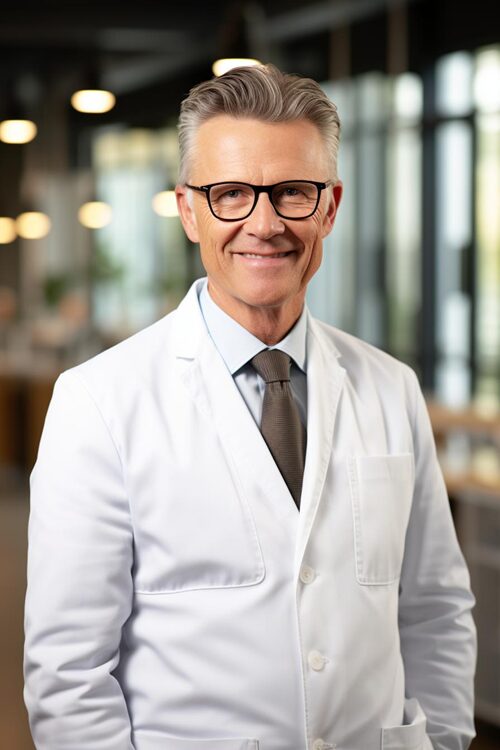Endoscopic Mucosal Resection in Kansas City, MO
What is endoscopic mucosal resection?
An EGD (esophagogastroduodenoscopy) is an endoscopic procedure where a lengthy, thin, malleable tube, or “scope,” is put into the mouth and snaked to the duodenum (the beginning of the small intestine). The scope includes a light and camera attached to the end, which allows our GI providers at Digestive Health Specialists to easily review the lining of the esophagus, belly, and the first portion of the small intestine.
An EGD may be suggested as a way to diagnose gastrointestinal problems, including abdominal pain, heartburn or acid reflux, difficulty swallowing, bleeding, or irregular x-ray results. An EGD may also be performed for Kansas City, MO patients with constant symptoms of heartburn to search for changes that are associated with esophageal cancer. If you need an EGD, schedule an appointment with a gastrointestinal specialist at Digestive Health Specialists.
What are the benefits of endoscopic mucosal resection?
Endoscopic mucosal resection is a marginally invasive alternative to surgery for extracting unusual tissues from the lining of the digestive tract. Your doctor could propose the procedure to withdraw certain early-stage cancers or precancerous growths.
Some of the diseases that EMR has been employed to address include:
- Cancer of the small intestine (duodenum)
- Stomach (gastric) cancer
- Colon polyps
- Colorectal cancer
- Esophageal cancer
- Noncancerous tumors of the uterus (leiomyomas)
- Barrett’s esophagus
If you have any one of the listed diseases and wish to discover additional information regarding this method, reach out to Digestive Health Specialists today.
What are the risks of endoscopic mucosal resection?
Potential complications of endoscopic mucosal resection include:
Puncture (perforation)
Constriction of the esophagus
Bleeding
Get in touch with your Kansas City, MO gastroenterologist and get prompt care if you notice any of the listed signs or symptoms after you have an endoscopic mucosal resection:
- Bright red blood in the stool
- Black stool
- Shortness of breath
- Chills
- Fainting
- Fever
- Vomiting
- Chest or abdominal discomfort
When will I get the results of my endoscopic mucosal resection?
You’ll have an additional appointment with your GI provider at Digestive Health Specialists to review the outcome of your endoscopic mucosal resection and the results of any laboratory exams performed on tissue specimens. Some questions to pose your doctor are:
- Were you able to extract all anomalous tissue?
- If I have cancer, will I require additional treatments?
- Do I need to see a cancer specialist (oncologist)?
- How will you supervise my status?
- What were the outcomes of the biopsy exams? Do I have cancer?
Typically, you will have another colonoscopy or upper endoscopy a few months following your endoscopic mucosal resection to be certain the entire lesion is eliminated. During your initial procedure, your physician might stain the section of the removed growth with ink (tattoo) so that the section can be easily examined when you have any future procedures. The requirements for additional appointments depend on the conclusions of these results.
